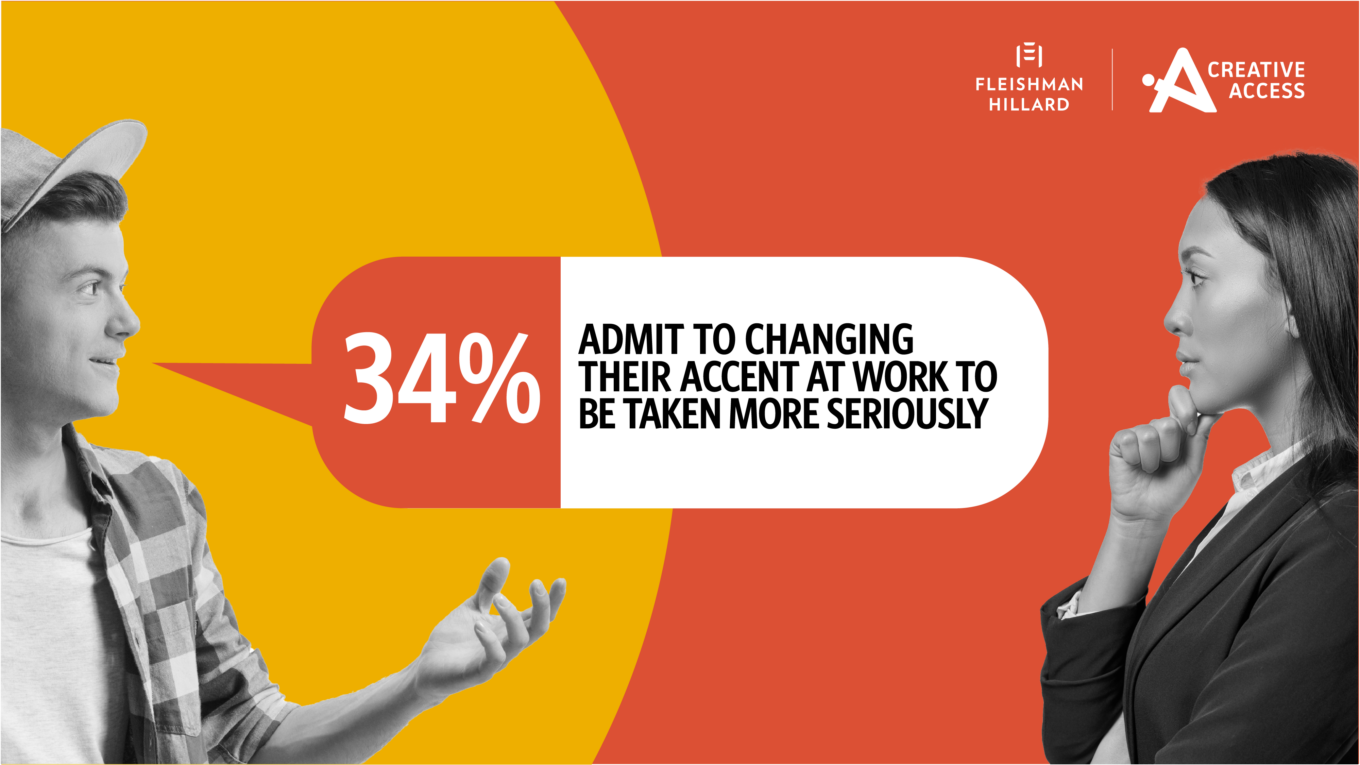Accent bias and language discrimination in the creative industries

Guest author: Bibi Hilton, CEO of Creative Access
Accents and use of language are often seen (mistakenly) as a marker of class, level of education and socio-economic background. Creative Access, a leading social enterprise specialising in diversity and inclusion, partnered with FleishmanHillard UK to explore the extent and impact of this “language discrimination” on employer cultures, employees and aspiring employees and on the work they produce in the creative industries and beyond.
Our research consisted of two parts:
- A micro view in the UK
Creative Access community views and lived experiences – a study with over 300 people, the majority from groups under-represented in the creative industries in terms of:
- Disability: 25% consider themselves to have a disability.
- Race and Ethnicity: 41% identify as Black, Asian and ethnically diverse.
- Lower Socio-Economic Status*: 68% are from lower-middle- or working-class backgrounds.
- A macro view in the UK
A nationally representative poll of 2000 UK adults working across all sectors.
Our research discovered that 89% of our Creative Access community have felt prematurely and subconsciously judged by others based simply on their accent and manner of speech. Many have lived with this from a young age and have adopted the practice of code-switching; changing the way they speak in different situations, from changing their accent during job interviews or speaking with authority figures and in the workplace.
They have been given the impression that changing their accent or language in this way will make them appear smarter and be taken more seriously or that they need to speak a certain way to access and progress in certain sectors. Our research also shows that these factors particularly impact people from lower socio-economic backgrounds and other communities under-represented in the creative industries.
The Language of Discrimination report shares the research findings in five parts:
- Part 01: Addressing accent assumptions
- Part 02: Lessons in not being yourself
- Part 03: The Sound Barrier
- Part 04: Pronunciation and progression
- Part 05: Voices for change
Download your copy of the research which sets out how employers in the PR and creative industries can work to overcome accent and language discrimination.
* Creative Access defines lower socio-economic status as a combination of factors based on the Office for National Statistics guide, plus guidance from Arts Council England. We ask candidates to self-declare a number of factors, including eligibility for Free School Meals, accommodation type and whether or not they were the first person.
—
Engage with FleishmanHillard’s diversity, equity & inclusion (DE&I) experts at True MOSAIC for a fresh point of view to help organisations act on today’s most complex issues. True MOSAIC, is a global FleishmanHillard practice dedicated to providing expert, timely, strategic counsel on DE&I.
Find Out More
-
Achieving Outsized Impact by Building Stronger Country Reputation
February 18, 2025


